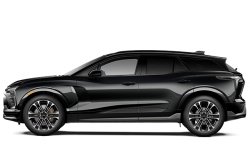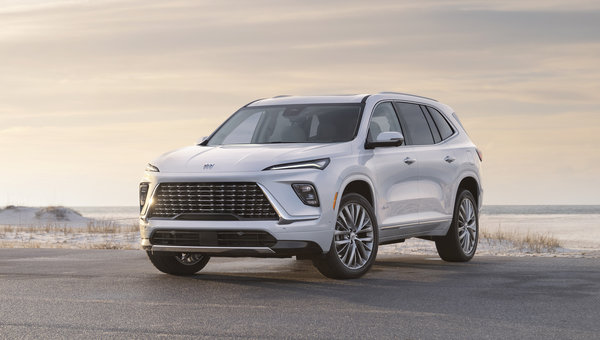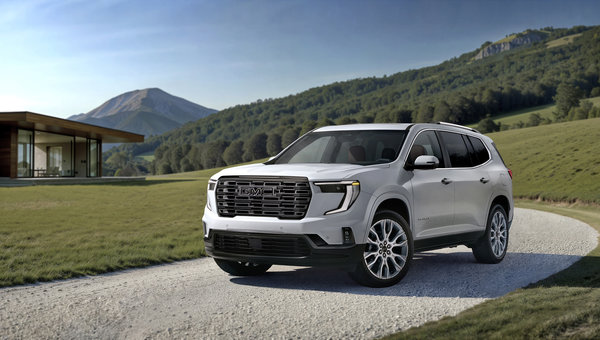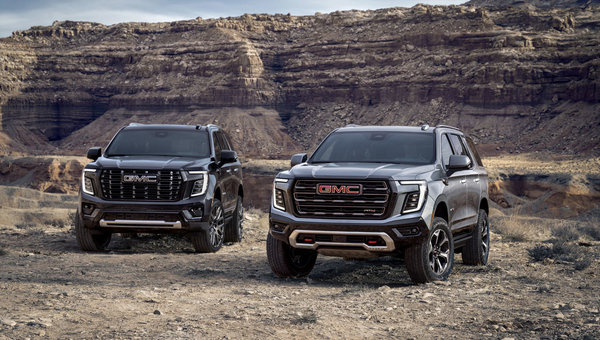2025 Chevrolet Blazer EV Charging Guide for Quebec Drivers
June 25 2025,
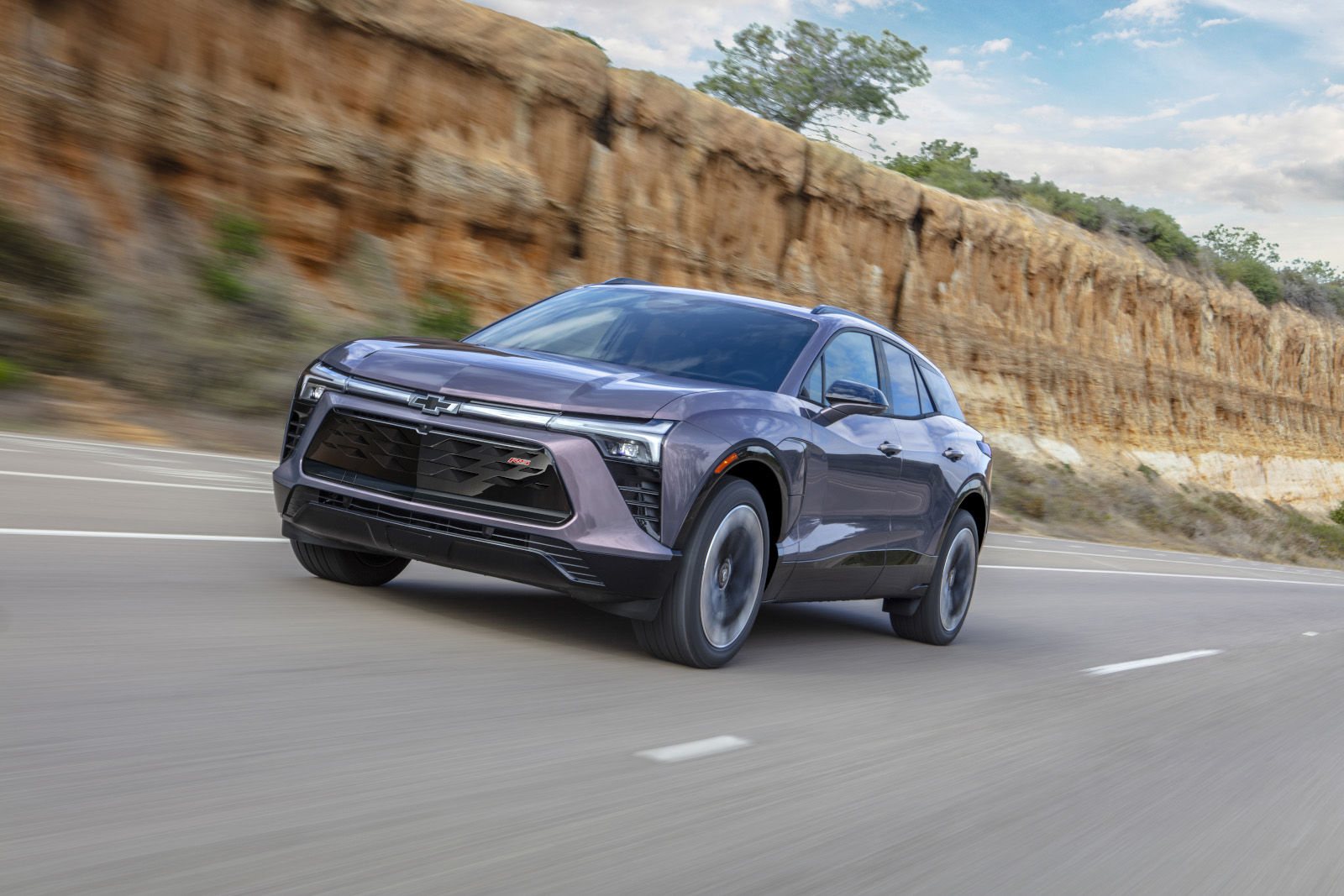
Quebec drivers considering electric vehicles need clear information about real-world range and charging infrastructure. The 2025 Chevrolet Blazer EV offers electric SUV capability designed for Canadian conditions, but understanding its charging speed and range helps drivers plan daily commutes and longer trips confidently.
Electric vehicle adoption in Quebec benefits from the province's clean electricity grid and growing charging network. The Blazer EV's specifications address the practical questions drivers have about electric SUV ownership.
Battery and Range Specifications
The Blazer EV uses GM's Ultium battery platform, which provides the foundation for the vehicle's electric driving capability. Range varies by trim level and drive configuration.
The RS RWD configuration offers up to 521 km of electric range on a full charge, making it suitable for extended highway travel between Quebec cities. Other trim configurations provide different range capabilities:
- Blazer EV (base): 502 km range
- Blazer EV RWD: 538 km range
- Blazer EV (22" Wheels): 455 km range
- Blazer EV LT/RS AWD: 455 km range
- Blazer EV SS AWD: 488 km range
The RS RWD produces 340 horsepower, providing strong acceleration for highway merging and passing.
All-wheel drive capability comes standard, providing traction confidence on Quebec roads throughout the year.
DC Fast Charging Performance
The Blazer EV includes DC fast charging capability that works with Canada's growing network of public charging stations. The RS RWD configuration can add approximately 125 km of range in about 10 minutes of DC fast charge time.
Charging speed varies based on battery temperature, current charge level, and charger capacity. Peak charging speeds typically occur when the battery charge level is between 10% and 80%, making this the most efficient range for highway travel stops.
Battery thermal management helps maintain optimal charging performance across different weather conditions.
Home Charging Solutions
Most electric vehicle charging happens at home using Level 2 (240-volt) equipment. The Blazer EV includes onboard charging capability that works with standard home charging stations.
Level 2 charging provides practical overnight charging for daily driving needs. A typical overnight charge session replenishes the range used during daily commuting and errands.
Home charging eliminates the need to visit gas stations for regular refueling, providing convenience particularly valued during winter months.
Quebec Charging Infrastructure

Quebec's charging network continues expanding, with stations located along major highways and in urban centers. The Blazer EV works with multiple charging networks, providing access to different station operators.
Key Charging Locations Include:
- Highway corridors connecting major cities
- Shopping centers and retail locations
- Workplace charging at participating employers
- Hotels and destinations for travel charging
- Municipal charging in various Quebec cities
Mobile apps help locate available charging stations and monitor charging progress remotely.
Winter Performance Considerations
Quebec's temperature variations affect electric vehicle range and charging performance year-round. The Blazer EV includes features designed to address varying weather challenges.
Battery thermal management maintains optimal temperature for performance and charging efficiency. Remote start capability allows drivers to pre-condition the cabin while plugged in, reducing battery drain for climate control.
Heat pump technology (where available) provides more efficient cabin heating and cooling compared to traditional electric heating elements.
Cost of Operation in Quebec
Electric vehicle operation costs benefit from Quebec's competitive electricity rates. Home charging typically costs less per kilometre than gasoline for equivalent driving distances.
Time-of-use electricity rates allow drivers to schedule charging during lower-cost periods, further reducing operating expenses.
Reduced maintenance requirements compared to gasoline engines provide additional ownership cost savings over time.
Technology Integration for EV Management
The Blazer EV includes smartphone app connectivity that allows remote monitoring of charging status, range, and vehicle location. This technology helps drivers plan trips and manage charging schedules.
In-vehicle navigation includes charging station locations and can plan routes that include charging stops for longer trips.
Energy usage displays help drivers understand how driving style and conditions affect range and efficiency.
Practical Range for Quebec Driving

Real-world electric vehicle range depends on driving conditions, weather, and vehicle usage patterns. Highway driving, cold temperatures, and accessory use all affect total driving range.
The Blazer EV's range capability supports typical daily driving patterns for most Quebec drivers. The 502-538 km range of most configurations handles trips between major Quebec cities like Montreal-Quebec City (approximately 250 km) with range to spare.
Longer trips require planning charging stops, but the growing infrastructure network makes this increasingly practical.
Making the Electric Transition
The 2025 Chevrolet Blazer EV provides electric SUV capability suitable for Quebec driving conditions. Its charging flexibility and all-wheel drive standard equipment address the practical concerns drivers have about electric vehicle ownership.
Understanding charging options and planning charging routines helps drivers transition successfully from gasoline to electric power.
Contact Le Relais Chevrolet for detailed Blazer EV specifications and charging demonstrations.


